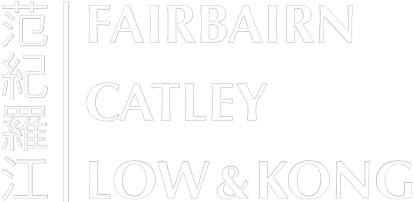As part of The Stock Exchange of Hong Kong Limited (HKEX) ongoing commitment to align with international standards, the HKEX had introduced a new set of climate-related disclosure regulations (New Climate Requirements), effective 1 January 2025.
The New Climate Requirements are being incorporated as a new Part D of the Environmental, Social, and Governance Reporting Code (ESG Code) of the Rules Governing the Listing of Securities on The Stock Exchange of Hong Kong Limited (Listing Rules). This initiative will significantly enhance the transparency and comparability of climate-related disclosures by listed companies, positioning Hong Kong at the forefront of sustainable finance.
Overview of HKEX’s New Climate Requirements
The HKEX has introduced the New Climate Requirements, modelled after the IFRS Sustainability Disclosure Standards (ISSB Standards) developed by the IFRS Foundation’s International Sustainability Standards Board (ISSB) in June 2023. The IFRS Foundation is responsible for developing global accounting and sustainability disclosure standards, known as IFRS Standards. In July 2023, the International Organization of Securities Commissions (IOSCO) officially supported the ISSB Standards and encouraged its member jurisdictions to explore methods of integrating, implementing, or leveraging these standards within their respective regulatory frameworks. The ISSB Standards are designed to establish a universal benchmark for sustainability reporting, ensuring that entities worldwide report sustainability disclosures in a coherent, comparable and reliable manner.
The HKEX is among the world’s first exchanges to enhance climate-related disclosure requirements in alignment with IFRS S2, marking a significant step forward in developing a comprehensive climate reporting framework. IFRS S2 Standard requires an entity to disclose information about climate-related risks and opportunities that could reasonably be expected to affect the entity’s cash flows, its access to finance or cost of capital over the short, medium or long term. The objective of IFRS S2 is to require an entity to disclose information about its climate-related risks and opportunities that is useful to users of general-purpose financial reports in making decisions relating to providing resources to the entity. This initiative is in line with the broader sustainability goals as set by the Hong Kong government. The updated ESG Code will bring Hong Kong’s regulatory framework in line with the international ISSB Climate Standards, supporting the transition towards sustainable finance.
Phased Approach for Implementation of the New Climate Requirements
The HKEX will adopt a phased approach to implement the New Climate Requirements, as follows:

Key Components of the New Climate Requirements
The New Climate Requirements require issuers to disclose information following the four core pillars as indicated under IFRS S2, in relation to climate-related risks and opportunities:

Implementation Reliefs
To address issuers’ concerns regarding reporting challenges that some issuers may encounter due to limitations in resources and/or technical knowledge, the ESG Code provides four types of implementation reliefs:
- Reasonable information relief: The ESG Code allows issuers to make disclosures based on reasonable and supportable information that is available at the reporting date without undue cost or effort.
- Capabilities relief: Issuers at different stages of their sustainability journey may prepare disclosures on climate-related scenario analysis and financial effects in line with their available skills, capabilities and resources at a particular point in time.
- Commercial sensitivity relief: Issuers may omit disclosure of confidential and commercially sensitive information regarding climate-related opportunities under Part D of the ESG Code.
- Financial effects relief: Under certain conditions, issuers may provide qualitative instead of quantitative financial information.
Conclusion
Given the growing importance of ESG practices and mandatory reporting requirements, issuers are urged to familiarise themselves with the New Climate Requirements under the ESG Code and the ISSB Climate Standards, and to integrate them into the business and reporting processes. Adapting to the New Climate Requirements will not only ensure regulatory compliance but also enhance an issuer’s reputation among stakeholders, investors, and the wider public.
If you have any enquiries in relation to this article, please contact our team and we will be happy to assist you.
_________________________
[1] Scope 1 GHG emissions refer to direct greenhouse gas emissions that occur from sources that are owned or controlled by an issuer, such as fuel combustion in company vehicles or emissions from facilities.
Scope 2 GHG emissions refer to indirect greenhouse gas emissions from the generation of purchase of or acquired electricity, steam, heating or cooling consumed by an issuer.
Scope 3 GHG emissions refer to encompasses emissions that are not produced by the company itself and are not the result of activities from assets owned or controlled by them, but by those that it’s indirectly responsible for up and down its value chain.
[2] Issuers that are Hang Seng Composite LargeCap Index constituents.
[3] A “comply or explain” provision of the ESG Reporting Guide requires listed companies to disclose reasons for any deviation from, or failure to report on, any provisions. Reasons for not reporting on a comply or explain provision might include confidentiality constraints, lack of ESG materiality, or legal restrictions.


